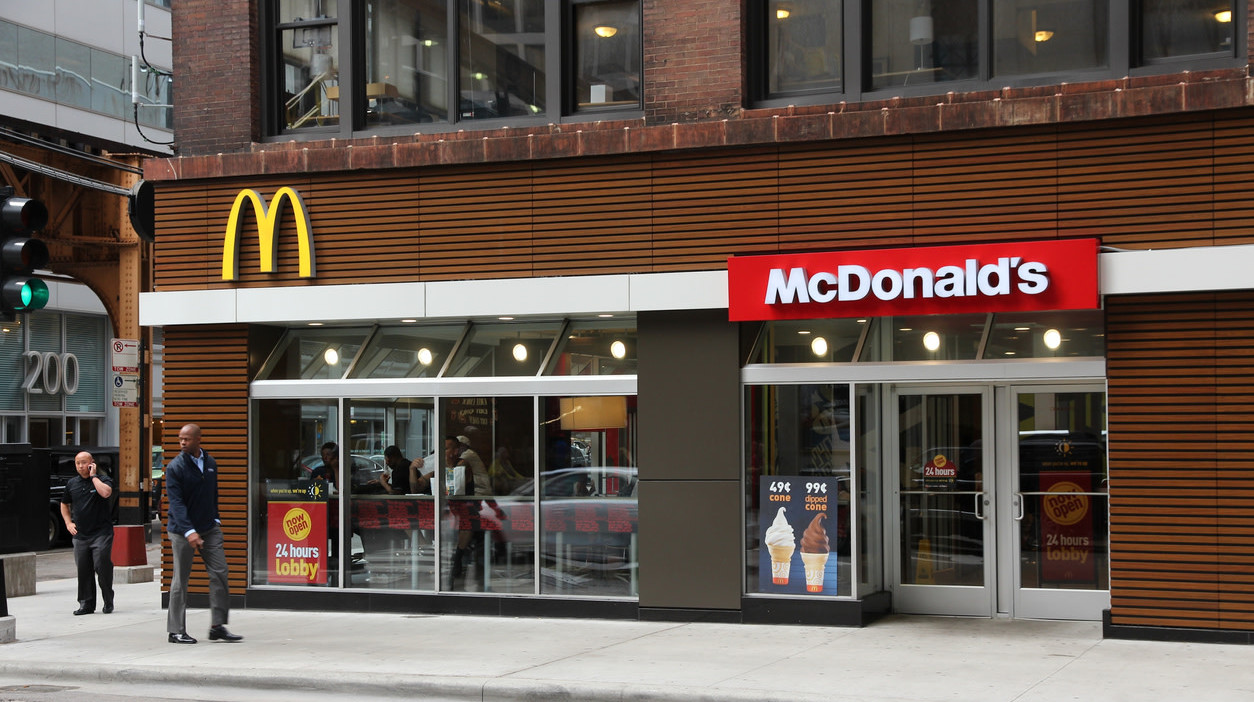Was McDonald's An Agent Of Civil Rights And Racial Justice?
As with many things in America, the Black customers, workers, and franchise owners of McDonald's have a much different experience with the fast food chain than their white counterparts do. This was made apparent last week when two Black franchise owners filed a lawsuit against the fast food chain for racial discrimination. In her new book, Franchise: The Golden Arches in Black America, historian Marcia Chatelain traces the ways McDonald pushed to establish itself in Black neighborhoods and position itself as an agent of Black economic development. But in reality, she writes, those jobs actually paid very little and pitted Black franchise owners against members of their own communities.
Chatelain sat down for an interview with Christina Cauterucci over at Slate to talk a little bit more about the book and the history of fast food in Black neighborhoods and how McDonald's both helped and harmed the people who lived there. What's fascinating to me is how McDonald's, through its charities, stepped in to provide services to people who weren't being served by the government.
There are all of these reasons why fast food is a rational choice. What is deeply irrational to me is that we live in a system in which people can't make many food choices because they can't afford electricity, or their landlord hasn't delivered a proper refrigerator for them, or they can't pay their gas bill one month because it got really cold. But we culturally fixate on the food problems because that's a pathway to individualize real structural inequalities that are hard to grapple with. As I've gone through this process, I've realized I'm more indifferent about fast food and probably more indignant about capitalism than anything else.
